Evasive Motorsports’ modified Tesla Model 3 readies for a run at Pikes Peak glory
The Pikes Peak International Hill Climb is one of America’s most famous races, and for the past several years it’s served as a de facto proving ground for electric racing vehicles—including multiple Tesla Model 3s, all rather lightly modified.
Evasive Motorsports is very familiar with Pikes Peak, winning the Unlimited class in last year’s race with a modified Toyota 86 piloted by Dai Yoshihara. And this year it’s getting in with a Model 3. For the 99th running of the hill climb, the driver stays the same but they’re sending a heavily modified Tesla Model 3 AWD Performance up the course this go-round. It will run in the Exhibition class, alongside two other Model 3s and at least one Model S.
The famed 12.42 mile course is run on a closed off public highway and covers 156 turns. It concludes at the top of Pikes Peak, 14,115 feet above sea level, and that elevation is in part what gives electric vehicles some extra appeal: the oxygen starved atmosphere at that height doesn’t affect an electric motor the same way that it does say, a turbocharged combustion engine.
That’s part of the reason that the current overall time record is actually held by an electric car—the Volkswagen ID R electric prototype. That car ran the course at a time of 7:58.158 in 2018, which broke the course record by 18 seconds.
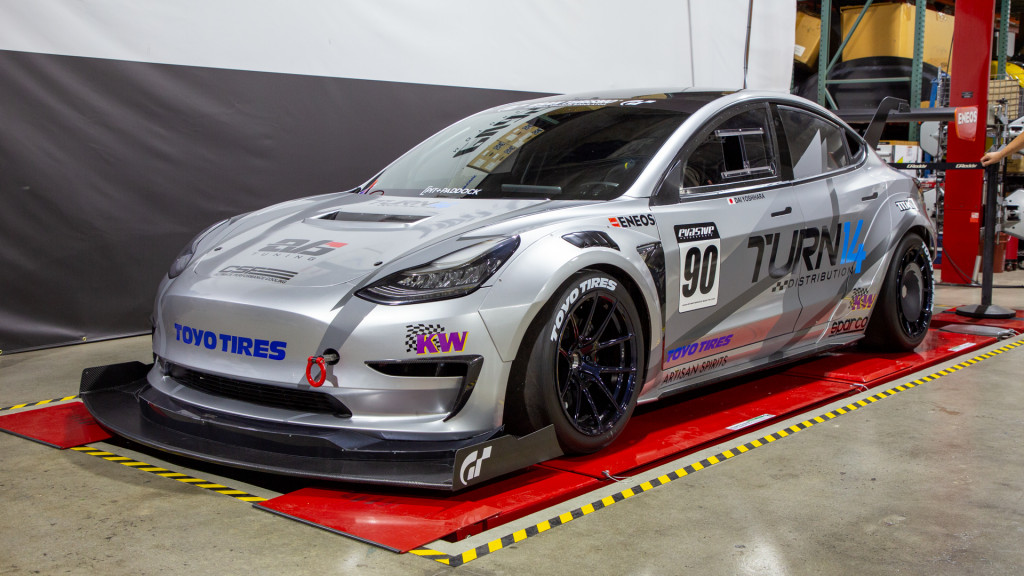
Evasive Motorsports Model 3
The current record for a production-based electric vehicle was set just last year, in a lightly-modified Model 3 driven by Blake Fuller. That car finished the course in 11:02.802, barely ahead of another heavily modified Model 3 driven by Randy Probst that suffered a power loss midway through the course due to undetected internal damage in the battery pack. The folks at Evasive Motorsports, a tuning shop based out of Los Angeles, think that they can do better.
Most of Evasive’s experience and business with aftermarket performance and tuning cars has been, predictably, with ICE vehicles. But as Mike Chang, co-founder of Evasive Motorsports, told the crowd on hand to see the Model 3, “I truly believe that EVs are here to stay and I believe a platform like this for us will be important for future customers, and how to extract performance from electric vehicles.”
There will come a time when today’s kids become tomorrow’s enthusiasts, with dreams of modifying cars with electric motors instead of gas engines. And if the enthusiasm surrounding this car was any indication, it’s already approaching.
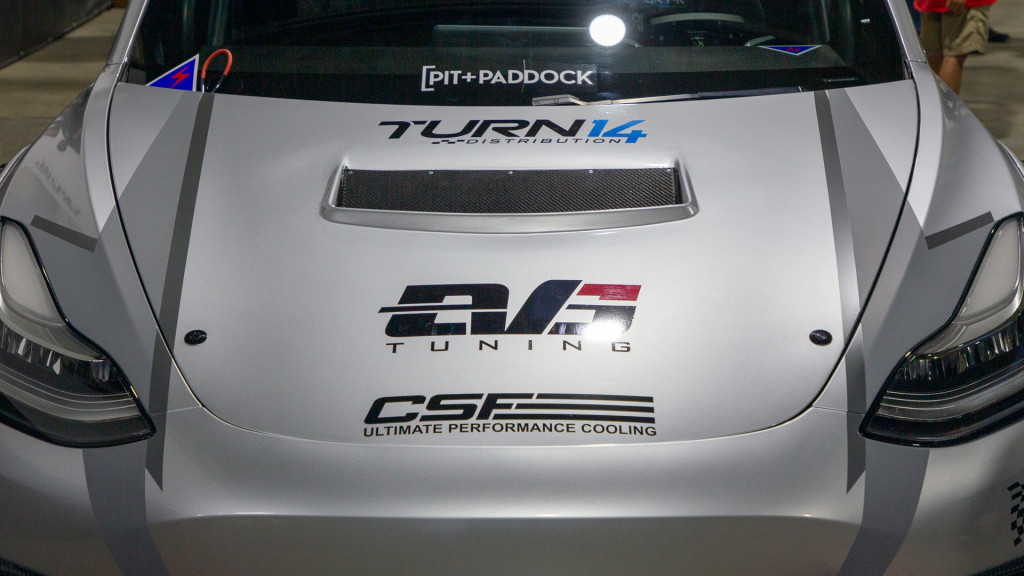
Evasive Motorsports Model 3
For now, those modifications do not include pulling more power out of the Model 3’s motors and battery. It will be running on the bone stock battery and electric motors, which means that the car has the same 450 horsepower and 471 lb-ft of torque that it did leaving Tesla’s factory. Evasive says that there is space to pull more power out of the setup, but doing so would require modifications to the car’s software and that would result in the Model 3 losing fast charging capability. That would make such changes to a consumer car a non-starter and the other goal of this build is to show what you can do to your Model 3—so, stock it is.
(Evasive Motorsports did reach out to Tesla with its plans to run a Model 3, but got no response from the automaker.)
Without power gains, it was time to turn to other areas of improvement, starting with weight savings. Every panel or window that can be replaced has been with carbon fiber or composite parts. The rear windows are gone completely and have been replaced by lexan panels, except for the rear window and roof which are carbon fiber as well. Gone are the dash, the rear bench, and the passenger’s seat—though the screen remains in its familiar spot. A custom roll cage has been installed and the driver’s seat is now a Sparco kevlar racing bucket with a six point harness.
All told, the Model 3’s weight was reduced by about 600 pounds.
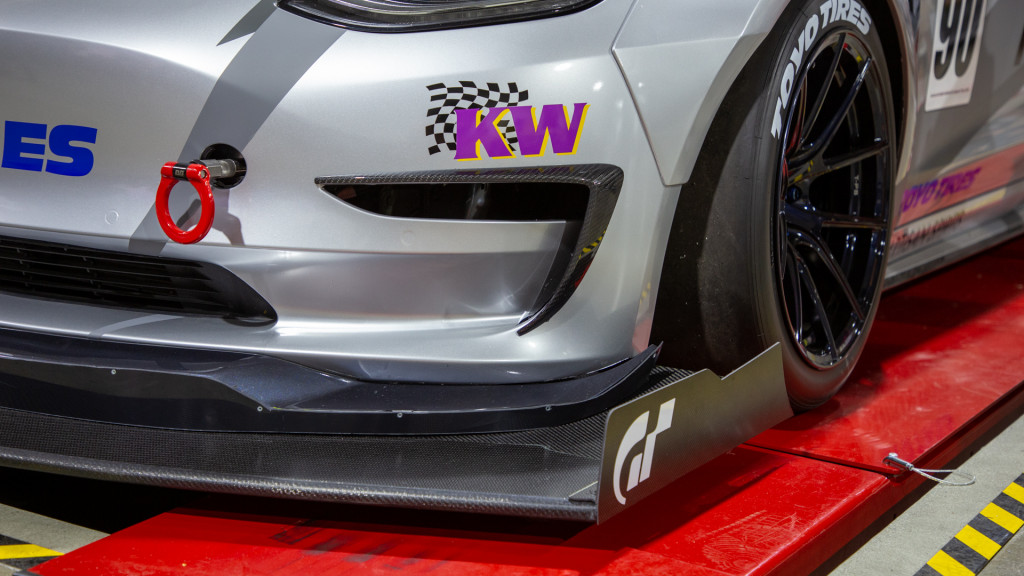
Evasive Motorsports Model 3
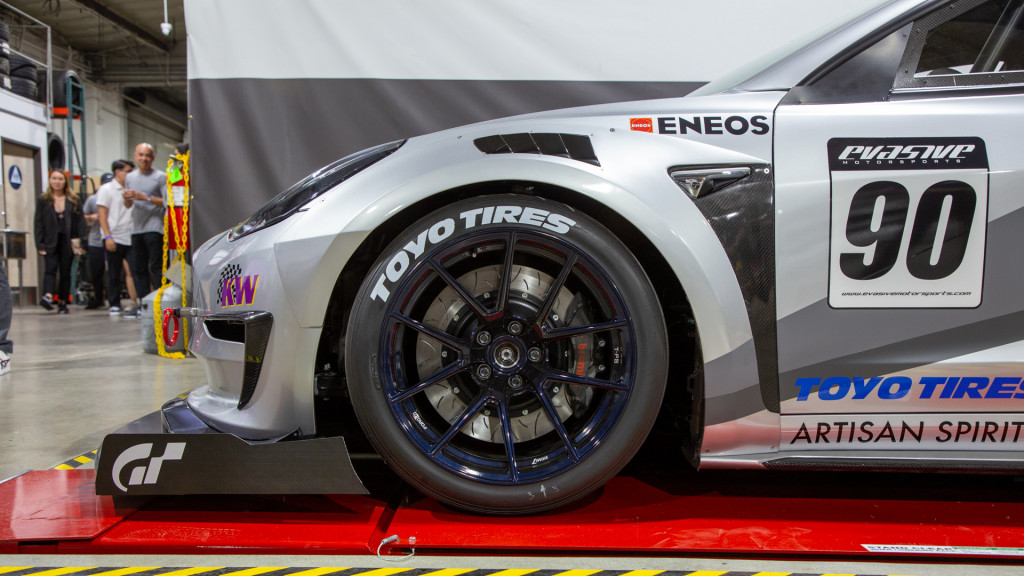
Evasive Motorsports Model 3
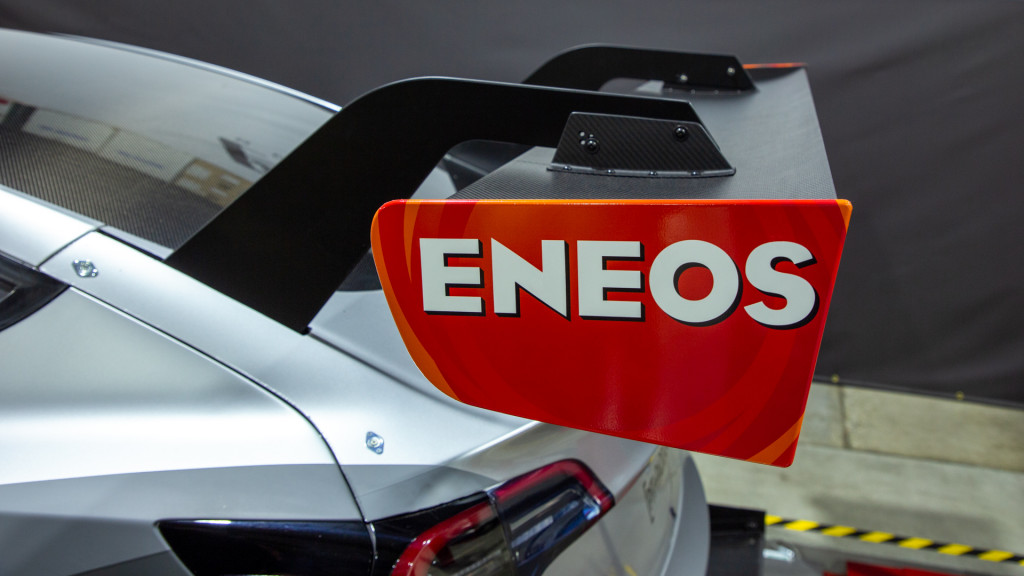
Evasive Motorsports Model 3
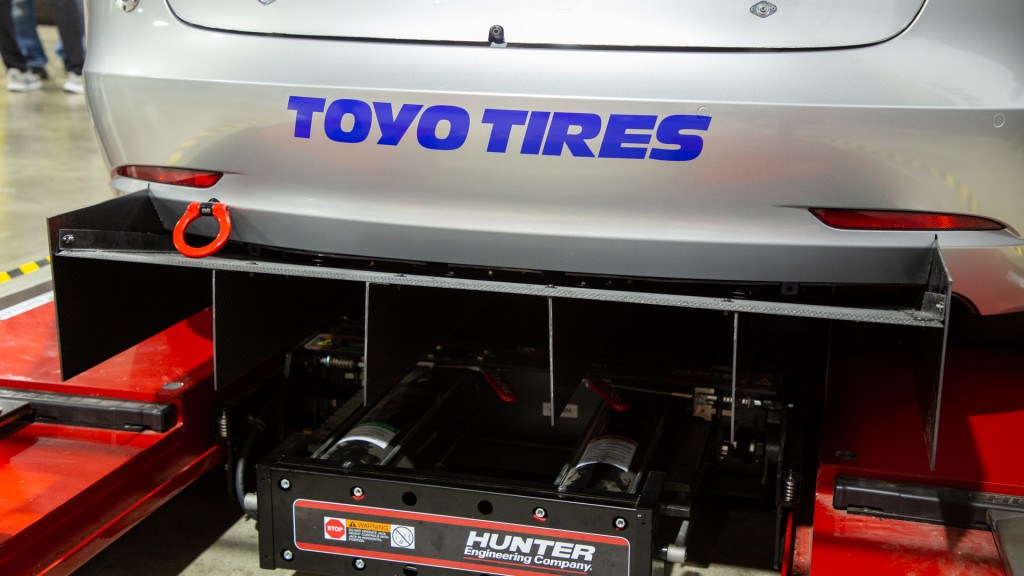
Evasive Motorsports Model 3
The Model 3 is designed to be slippery rather than produce downforce, but that’s what you need to stick to the road so there is a custom built honeycomb carbon fiber front splitter and rear diffuser that stick out prominently from either end of the car. The competition Model 3 also has a full body kit from Artisan Spirits, a shop out of Japan, and a Voltex carbon fiber 1800mm GT Wing. Adding grip is a set of custom produced Toyo racing slicks, wrapped around 18×11 forged alloy wheels.
The biggest issues that Evasive found when testing the Model 3 at the track came in the form of heat, which is the battery’s biggest enemy. To combat this, large radiators were added front and rear, and an NO2 sprayer was installed as well. On the dyno, this resulted in a 50% reduction in operating temperatures which then stayed constant as the Model 3 ran durability tests. And that’s hopefully enough cooling to keep the battery pack running at a consistent low temperature in Colorado.

Evasive Motorsports Model 3
Race day is June 26, with practice kicking off during the week before that. We’ll be watching closely to see how not only the Evasive car performs, but the other electrics in the field as well, hoping to see clean (and safe runs) with records falling in the process. It’s exciting to see what these cars can do without powertrain modifications, though we do hope to see what these vehicles can do when that barrier eventually falls.

